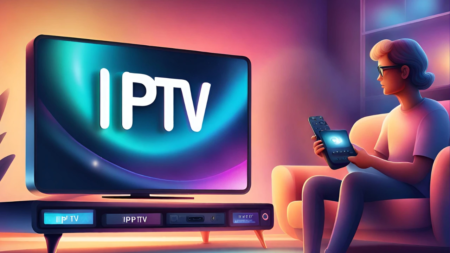In your global where convenience, customization, and connectivity are everything, IPTV (Internet Protocol Television) is quickly learning to be a popular alternative to traditional TV services. Whether you're binge-watching your favorite series, catching live sports, or exploring international channels, iptv service provides a flexible and modern strategy to experience television.

What is IPTV?
IPTV means Internet Protocol Television. Unlike traditional cable or satellite TV that broadcasts through radio waves or satellite signals, IPTV delivers content over the internet. It allows users to stream media completely from servers using broadband or internet connections.
Simply put: IPTV permits you to watch live TV, on-demand shows, as well as other digital content via the internet — anytime, anywhere.
How Does IPTV Work?
IPTV uses your online connection to stream content. It typically will come in three formats:
Live TV – Streaming real-time channels, like news or sports.
Video on Demand (VOD) – Accessing a library of movies, TV shows, or videos to watch whenever you want.
Time-shifted TV – Rewinding or replaying live broadcasts (ideal for when you miss a show or match).
To access IPTV, you generally need:
A high-speed connection to the internet
A compatible device (Smart TV, set-top box, smartphone, tablet, or computer)
An IPTV app or software
A subscription with an IPTV service provider
Advantages of IPTV
Huge Channel Variety: Many IPTV services offer thousands of international channels and on-demand content.
High Quality Streaming: HD, Full HD, as well as 4K options are available.
Flexibility: Watch on multiple devices, switch between live and on-demand content, and access programs yourself schedule.
No Dish Required: All you need is internet connection — no messy installations or satellite dishes.
Things to Consider
Before jumping into IPTV, maintain your following at heart:
Legality: Not all IPTV providers operate legally. It’s important to choose services that are licensed and compliant with the laws of copyright in your country.
Stable Internet: IPTV requires a good connection to the internet (usually at the very least 10 Mbps for HD quality) to be effective smoothly.
Device Compatibility: Some services may necessitate specific apps or hardware such as an Android box or Firestick.
Is IPTV Worth It?
If you’re aiming to cut the cord and explore a more personalized, flexible viewing experience, IPTV is usually a great option. It’s especially appealing for users considering international content, live sports, or perhaps a wide range of on-demand entertainment.
IPTV is changing the way people watch TV — making it more dynamic, user-friendly, and tailored to individual preferences. As internet speeds continue to improve globally, IPTV is predicted to keep growing, offering a smarter way to stay entertained.
